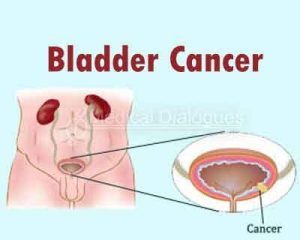- Home
- Editorial
- News
- Practice Guidelines
- Anesthesiology Guidelines
- Cancer Guidelines
- Cardiac Sciences Guidelines
- Critical Care Guidelines
- Dentistry Guidelines
- Dermatology Guidelines
- Diabetes and Endo Guidelines
- Diagnostics Guidelines
- ENT Guidelines
- Featured Practice Guidelines
- Gastroenterology Guidelines
- Geriatrics Guidelines
- Medicine Guidelines
- Nephrology Guidelines
- Neurosciences Guidelines
- Obs and Gynae Guidelines
- Ophthalmology Guidelines
- Orthopaedics Guidelines
- Paediatrics Guidelines
- Psychiatry Guidelines
- Pulmonology Guidelines
- Radiology Guidelines
- Surgery Guidelines
- Urology Guidelines
Simple test predicts return of bladder cancer

Scientists have devised a simple test for an earlier and more accurate warning of returning bladder cancer than existing methods, according to research* published in the British Journal of Cancer .
Researchers from the University Hospital of Lyon tested the urine of 348 bladder cancer patients for a faulty protein called TERT, and this was able to predict when the cancer was about to return in more than 80 per cent of patients. The standard method, called cytology, detected the return in only 34 per cent of patients.
The new test detected bladder cancers that had not spread to the muscle wall, earlier than cytology, potentially helping doctors to start treatment sooner and before symptoms appear.
A further benefit is that the new test distinguished cancer from urinary tract infections.
Professor Alain Ruffion, a researcher based at the University Hospital of Lyon's Oncology Institute said: "The standard cytology test needs a doctor to look down a microscope to read the results, but the TERT test is read by a machine which is simpler, more accurate and available to use straightaway. While the TERT test costs slightly more than standard cytology, it is likely to become cheaper over time."
"The fact that the test doesn't react to urinary tract infections is very interesting because it shows that it is robust and unlikely to give misleading results."
The discovery also suggests that further research is needed to understand more about the role TERT faults play in bladder cancer.
Anna Perman, senior science information manager at Cancer Research UK, said: "This promising study suggests a new and more accurate early warning system to detect whether bladder cancers are likely to return. Larger trials are now needed to see if this information could help more people survive by catching bladder cancer's return at its earliest stage."

Disclaimer: This site is primarily intended for healthcare professionals. Any content/information on this website does not replace the advice of medical and/or health professionals and should not be construed as medical/diagnostic advice/endorsement or prescription. Use of this site is subject to our terms of use, privacy policy, advertisement policy. © 2020 Minerva Medical Treatment Pvt Ltd